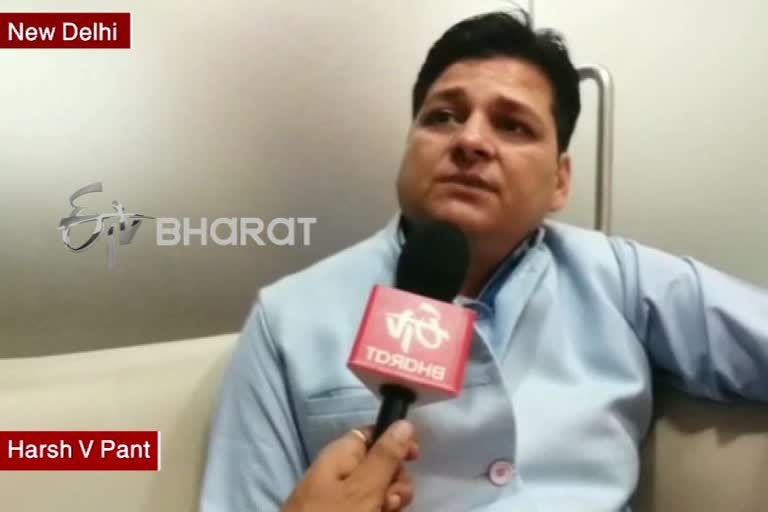New Delhi: The United Nations Security Council (UNSC) on Wednesday designated Jaish-e-Mohammed chief Masood Azhar as a global terrorist. Appreciating the development, director (Research) of the Observer Research Foundation Prof Harsh V Pant claimed that it was without any doubt a significant diplomatic victory for India and marked a new turn.
While talking to ETV Bharat, Pant said, "India's decision to up the ante after the Pulwama attacks by taking the fight to the Pakistani territory, has given this an added sense of urgency. This has now put the onus on Islamabad to de-escalate, a reversal of the post-1998 situation where in every India-Pakistan crisis it was New Delhi which was expected to take steps for de-escalation even as every crisis was precipitated by Pakistan."
"After every crisis, the international community, especially the West, would persuade India to ease tensions, and in most cases India relented. The post-Pulwama South Asian strategic equilibrium has shifted, as New Delhi has made it clear that it could not be expected to look the other way from Pakistani provocations," he added.
Pant also pointed out that by building pressure on China, India has called out its bluff. He further asserted saying that global powers like UK, US, Russia and France realise that they need to show solidarity with India for peace in the region.
On relations with China, Prof Pant claimed that significant differences between both countries were so big that it was difficult to smoothen it with one move.
Also read: INS Ranjit to be decommissioned on May 6



